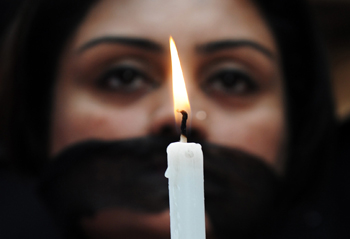Washington, Jun 4: The United States has said it is "horrified" at reports of sexual violence and murders in India and it also applauded the role of individuals, government officials and civil society groups working to protect the survivors.
 "Like so many in India, we were horrified to learn of these violent sexual assaults and murders. Our thoughts are with the victims families during this difficult time," State Department Deputy Spokesperson Marie Harf said yesterday.
"Like so many in India, we were horrified to learn of these violent sexual assaults and murders. Our thoughts are with the victims families during this difficult time," State Department Deputy Spokesperson Marie Harf said yesterday.
Harf was responding to questions on the brutal gang rape and murder of two teenaged girls last week in Uttar Pradesh's Badaun district.
"As we have said, changing laws and changing attitudes is hard work," she said.
However, Obama administration had praised the role of government officials along with civil society groups working to protect the survivors in the country.
"We applaud the many individuals, government officials, and civil society groups in India that are working to protect the survivors, to prevent gender-based violence, to help it try to change what is really hard to change," she added.
The former USIBC president, Ron Somers, said the urgent need of the hour is to double-down on law and order, particularly to protect women and to administer the law fairly to all sections of society.
"The headlines of the recent rape case are becoming all too frequent. This tragedy is a blight on all humanity, affecting all of us directly.
The damage such an act perpetrates on India's image is real. Investors and travellers the world over hesitate and pause while considering basic safety," he said.
"Recognising that law and order is a state subject, and knowing that crimes of hate are acts of violence that respect no national borders, if only the central government could set a model example to spur best practices for keeping the peace, protecting the innocent across all of India, this is the urgent need of the hour", Somers said.





Comments
Add new comment